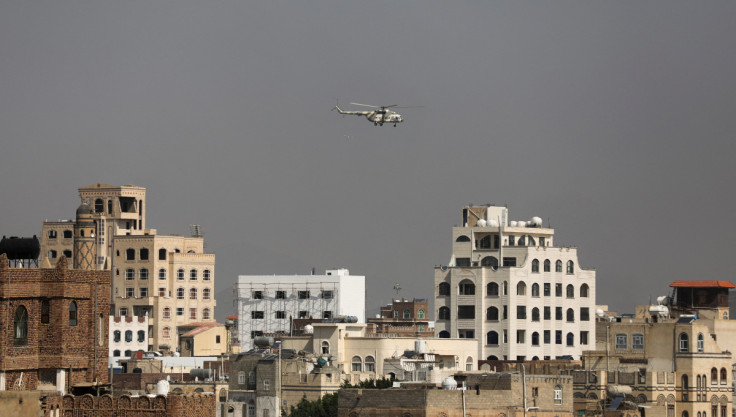
The Houthis, also known as Ansar Allah, which translates to 'supporters of God', are a Yemeni militant group that has been involved in a civil war for a decade.
Throughout the conflict, the group have gained control of most parts of Yemen, including the capital city Sana'a.
On Friday 12 January, the UK took part in a series of collaborated airstrikes on the Houthis, after the armed group launched an airstrike on a US shipment in the Red Sea.
According to a statement released by the White House, Australia, Bahrain, Canada, Denmark, Germany, the Netherlands, New Zealand, the Republic of Korea, the United Kingdom and the United States agreed upon the strike to "defend lives and protect the free flow of commerce in one of the world's most critical waterways".
Prime Minister Rishi Sunak was later slammed by MPs for striking the Houthis rebel group without parliament's approval.
Sunak responded to the controversial criticisms by claiming that the UK is willing to commit further military action against the group once again.
According to Amal Saad, a Lecturer in Politics and International Relations at Cardiff University, the Houthis strike against the US and Israel "marks the first time in history that a coalition of non-state actors has collectively come to the defence of another non-state actor, namely Hamas".
While the Yemeni rebel group, claimed that the assault on US-operated container ships in the Red Sea was in support of Palestine, Labour Party Leader Keir Starmer unexpectedly backed Sunak. Starmer said: "Like the Prime Minister, I totally reject the Houthis claims that attacking ships from around the world is somehow linked to the conflict in Gaza."
"These attacks do absolutely nothing for the Palestinian people. What is needed in Gaza is a humanitarian truce now, a sustainable ceasefire to stop the killing of innocent civilians, the space for the return of all hostages, urgent humanitarian relief and a decisive step towards a two-state solution," Starmer continued.
Supporting any further action against the Houthis, the Labour Leader said: "We must stop those who sow division. We must do what we can to disrupt and deter Houthis. And we must stay united and steadfast in defence of our values, our security and our right to self-defence,"
While the Houthis are not considered a terrorist organisation in the UK, it is widely known that the Yemeni militants are spearheaded by Iran, alongside terror groups: Hamas, the Palestinian Islamic Jihad (PIJ) and Hezbollah.
In response to further strikes being carried out against the Houthis, Saad recognised that the UK and other nations involved in the Yemen strike will struggle to wipe out the rebel group.
The alliance between Houthis Leader Abdul-Malik al-Houthi and Hezbollah Leader Hassan Nasrallah was formed due to their "mutual provision of military and political support to confront Israel", the Cardiff Lecturer said.
Iraq's Popular Mobilisation Units (PMU) has also been linked to Iran, Houthis and Hezbollah, after its recent assault on US and Israeli targets in Syria, Iraq and Israel.
After analysing the past behaviour of each armed group, Saam predicts that the militants work under Iran in "an alliance characterised by such a high level of coordination".
Lebanon's Hezbollah "directs, plans and coordinates military operations across the different conflict theatres" while keeping a "moderate-intensity war with Israel", Saam noted, adding that the PMU focuses on attacking western targets in Syria, Iraq and Israel.
According to the Politics and International Relations Lecturer, the Houthis' role is to conduct regular "attacks on cargo ships in the Red Sea and occasional strikes on Israel".
With Iran's strategic alliance in full swing, the rising tensions between Israel and Hezbollah would be "the most far-reaching and mutually destructive", Saam added.
"Nothing short of a ceasefire in Gaza can prevent the region from turning into a powder keg," the Lecturer warned.







